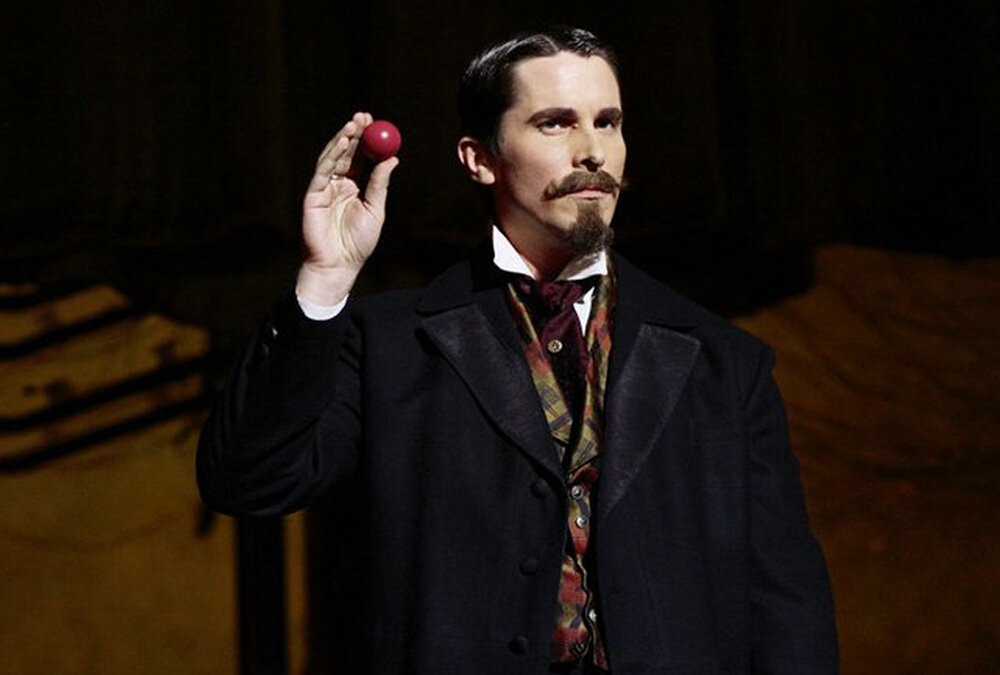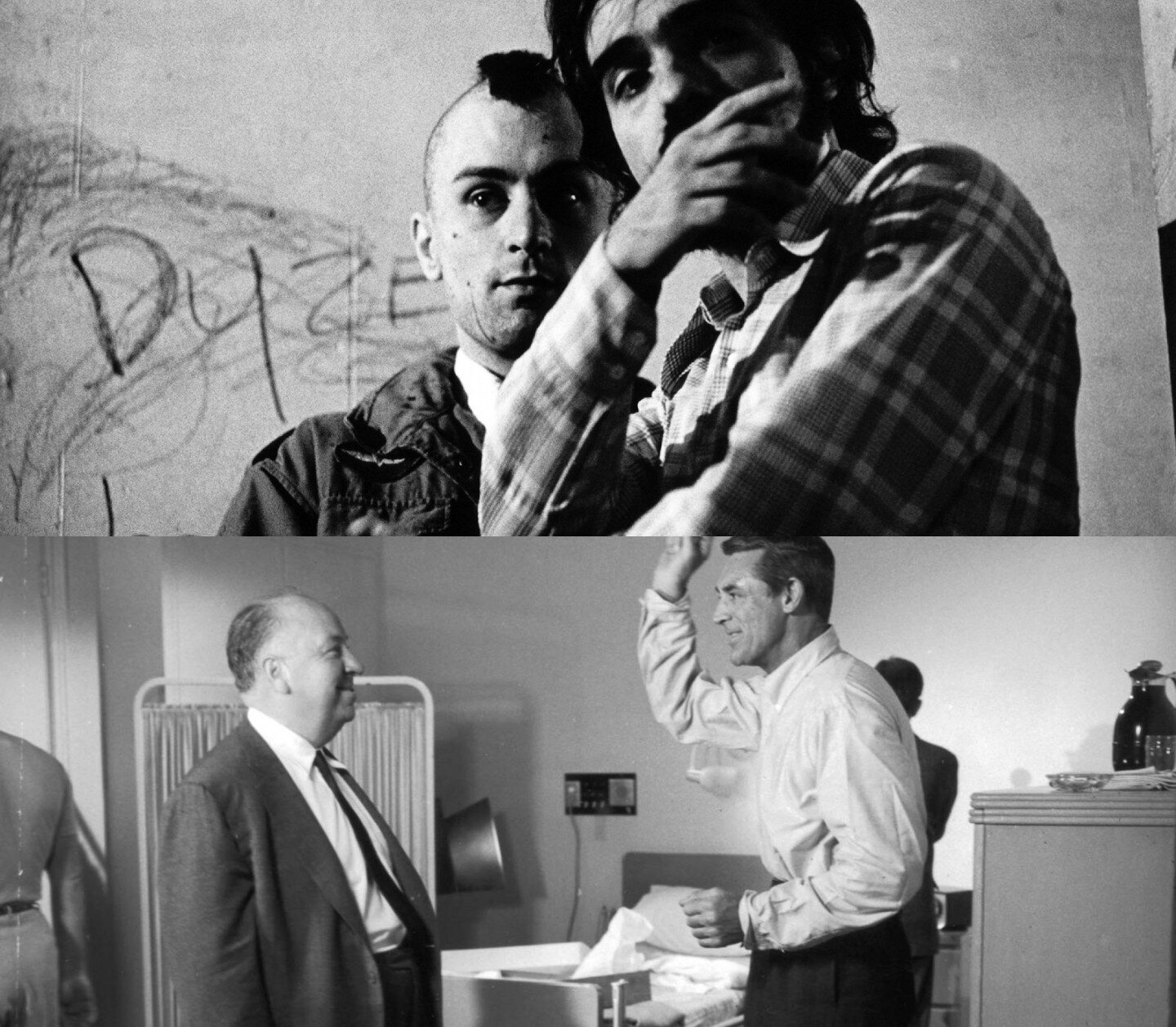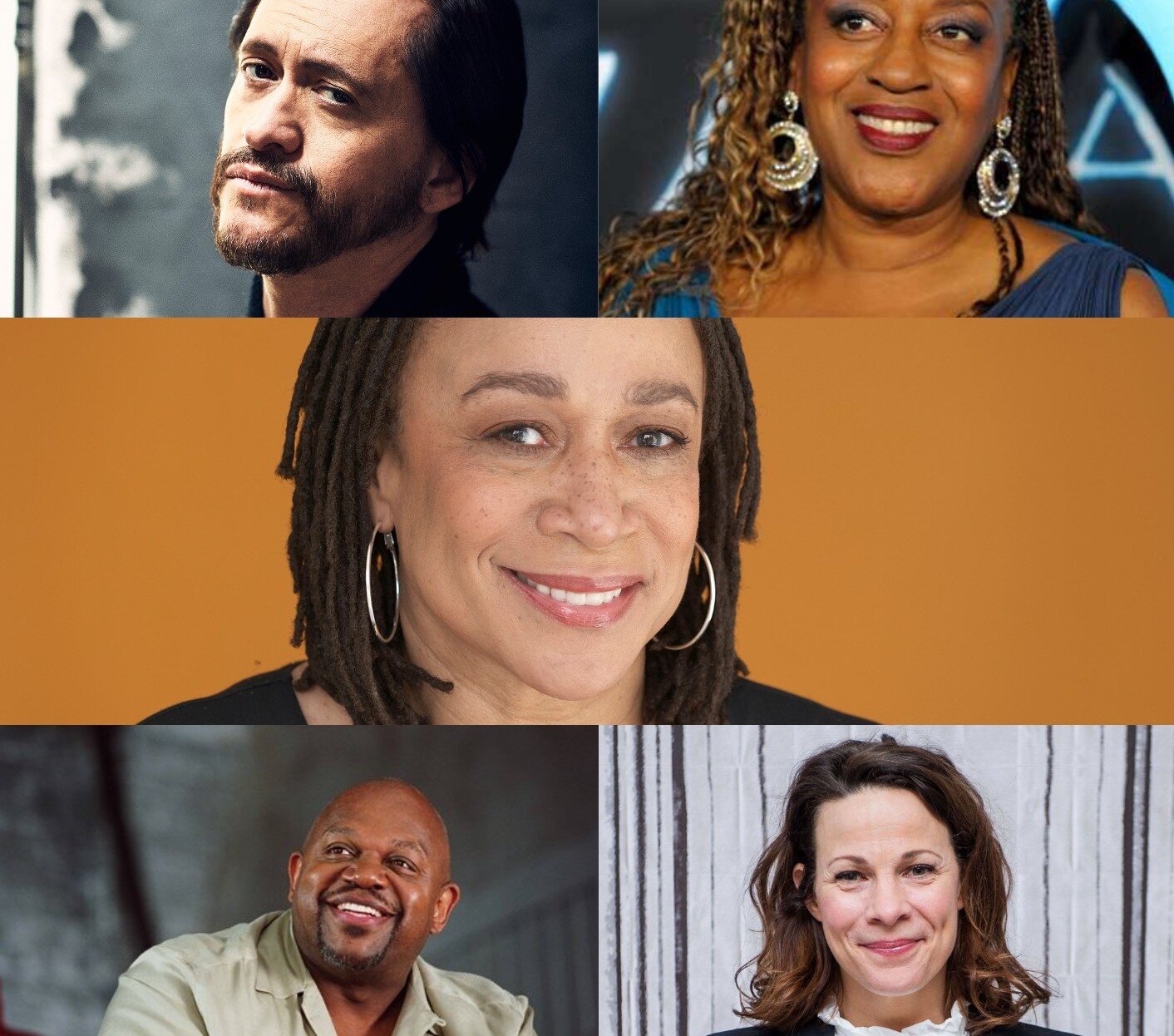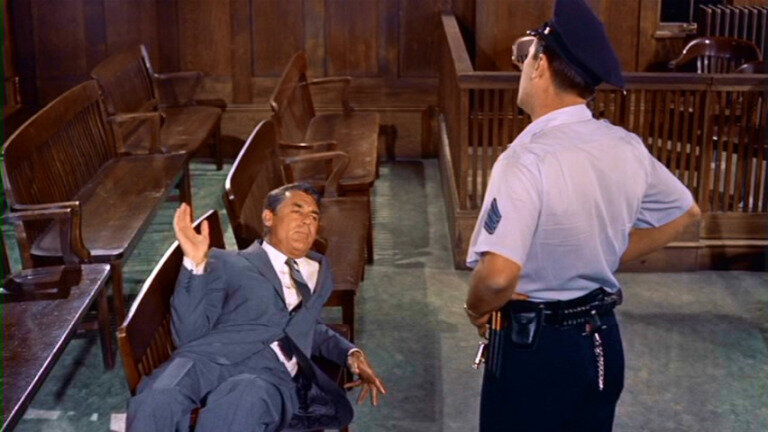On Crying.
/Tom Cruise breaks down in Paul Thomas Anderson's “magnolia”

Tom Cruise breaks down in Paul Thomas Anderson's “magnolia”














“He was amazing! He is a really, really interesting guy. The way it was shot, he is a very interesting dude. This movie could easily be freaky. His whole take on it is to kind of take any kind of modern sensibility off of it and just create a world in which its completely normal that people get chained up and beaten and sold to each other. He wanted to create a sense in which its totally normal, so he’s not commenting on it, at all.”






The Untouchables movie clips: http://j.mp/1BcPG9X BUY THE MOVIE: http://amzn.to/sW4EVr Don't miss the HOTTEST NEW TRAILERS: http://bit.ly/1u2y6pr CLIP DESCRI...

I love Gary Busey, I love him because he's volatile, because he's unpredictable as an actor, I love him because hes well…hes at least a little insane. Busey is raw combustible energy, chaos, connected to nerve endings, connected to tissue, connected to bone. He's a natural storyteller, and a natural performer and over time I feel that’s what has gotten lost in the drug abuse, the reality TV rants, and the antics. Busey's got a type of performing which is at the heart of why I love movies, the ever present possibilitiy to be wowed, especially by a performance, (maybe partially because I am an actor) this lingering possibility is always the juiciest part of turning on or sitting in a dark theater for me. In my world actors are the most accessible part of a movie. Even when direction fails, or writing is incomplete, or plot holes abound, a great performance or two will keep me interested, it's just the way I'm wired. It’s actually not even necessary for the performance to be great as much as it is interesting for the formula to work its magic in me. This is where Gary Busey over his entire career has never ever failed me. Busey is amongst my absolute favorites ever because he is almost always - if not flat out always - supremely, impossibly interesting to watch. The crackling purity of “WTF" energy in a Gary Busey performance is one of the most reliable forces on earth right up there with sunrises, gravity, and dog videos on the internet. I’ve watched him for over 30 years now and he is a model of consistency, as well as a complete original. My introduction to Busey like maybe many people my age was as “Mr. Joshua” in Richard Donner's "Lethal Weapon." I can recall with exceptional ease the way he shot up from beyond the screen to me, hell, he might as well have come from a pop-up book. Not only was there the look - the rabbit white hair, ( I always found it interesting that Gibson also found him to resemble a Rabbit "Jack Rabbit son of a bitch" ) the preppy look that alluded to his particular brand of covert sociopathy - but there was the focused electricity in his eyes and delivery. It's exemplified in his opening scene where he combines a laser-focused stillness exists in his eyes, with a body brimming with the energy of a shaken bottle of soda. Watching him it feels like a presentation of computerized animation of the inside his body might look like a cavalcade of exploding and firing neurons.
“That’s why it’s fun because it’s always leading you on to something new, something you haven’t seen before, something you haven’t discovered, something you haven’t thought about”










“The wounded child inside many males is a boy who when he first spoke his truths was silenced by paternal sadism by a patriarchal world that did not want him to claim his true feelings - bell hooks”

“In the process of creating a biography for Paul I also placed in a number of other personal betrayals so we have the large betrayal of the country and the culture and then we have the betrayals that I had suffered- the loss of my wife, the loss of my son. When I say the loss of my son, I mean the fact that the relationship is as fractious as it is. That constitutes a loss, because I cannot interact with my son and express the love that I have for my son in the way that I would like so those are two very, very deep-seated losses”
“For me forgiveness and compassion are always linked: how do we hold people accountable for wrongdoing and yet at the same time remain in touch with their Humanity enough to believe in their capacity to be transformed?”

“What is the secret? He told us himself. Whatever happens on the stage must be for a purpose. Even keeping your seat must be for a purpose, a specific purpose, not merely The general purpose of being insight of the audience. One must earn one’s right to be sitting there. And it is not easy. ”









Dolemite shows us his acting and kung-fu chops. #Dolemite #EddieMurphy #WesleySnipes 📺: Netflix ⚠️: I don't own or stream this show. Just a fan of it!


Uploaded by movies cilp on 2019-05-25.
The Untouchables movie clips: http://j.mp/1BcPG9X BUY THE MOVIE: http://amzn.to/sW4EVr Don't miss the HOTTEST NEW TRAILERS: http://bit.ly/1u2y6pr CLIP DESCRIPTION: Capone's (Robert De Niro) baseball metaphor ends badly for one gangster.


All rights belong to HBO Worldofkj is a film and television forum established in 2004 http://wokj.worldofkj.com/

Gladiator, a masterpiece in cinematic history, and one of the most powerful scenes in the movie that reveals a genius performance of Joaquin Phoenix, here with Richard Harris.


Sheila O’ Malley (Left) and Angelica Jade Bastién …Writers Supreme.
“For The Matrix, the Wachowskis coaxed a genuinely transcendent performance from Reeves, while also successfully synthesizing a host of inspirations (from cyberpunk literature to anime classics to various strains of philosophy detailing our notions of consciousness). The results profoundly rewrote the expectations of what an action star could be. Neo’s mournful, curious gaze and joyful compulsion as he learns about the real world brought to the fore the idea that more soulful, willowy folks could carry a hidden lethality — a suggestion new to the American landscape, which often preferred its action stars’ powers conscripted to immensely muscled bodies, with true emotion either nowhere to be found or wrapped in slickly delivered sarcasm. Reeves suggested that an action star should feel, at full tilt.”
“It is only in the director’s cut of Aliens that we learn Ripley’s first name is “Ellen.” All business, she charges past the injured Hicks, before stopping to say in an almost hopeful tone, “See you, Hicks…” When he says, “Dwayne. It’s Dwayne,” in gigantic close-up, the subtext turns text. Weaver, caught in his gaze, in the shattering of rank, in the rise of something being acknowledged, says, without prompting, “Ellen.” Eyes glinting with flirty mischief and intimacy, he sends her off with, “Don’t be gone long, Ellen.” It’s as though they’re suddenly in bed, in a world where they could be who they want to be to each other. As father-figure to the abandoned child Newt, as husband-figure to Ripley, Hicks is essential in creating the “found family” of the reproduction-obsessed storyline of Aliens. It’s impossible to imagine the film without him.”
“He and I had many moments in alleys accompanied by dramatic weather:
1. Freezing black ice-drenched night. Orange light from the street lamps. Slushy, grey, cold. Scrawny prowling stray cats. We stepped from iceberg to iceberg, suddenly shy with each other in the silence. His soft voice, “Sugar, step this way.”
2. A rainy night. We sat in his parked van. Speckled fogged windshield. We drank beer, played a tape, and sang along. Harmonizing. He said later, “That was the night it started for me.”
3. Downpour. Wooden stairway. Darkness. Our first kiss. Which was actually more like a nature program on the Discovery Channel than a kiss. Biting, scratching, shoving. Each one of us struggling to grab the reins, and dominate. Kissing to kill. His hand clamped round my throat.
4. Heat wave. Muggy hot close air. We rubbed ice cubes over each other’s faces. He lifted me up, placed my feet on top of his feet, and then danced me around the alley, holding me in his arms.
5. Tornado watch. Huddled against the van, huddled against the wind. He was getting married in a week. Not to me. Standing in the massive wind, pressing our cheeks together, not talking. For once, we were not talking. No other body parts touched. My cheeks wet with tears. His cheeks were dry. But when I pulled back, the look in his dry eyes was worse than weeping.”
“I was always an odd child, prone to health issues and anxiety. I had a nervous tic of looking at my shoes when I walked, leading me to careen into door frames and people, as if facing the world with a direct gaze was too much to bear. By then, my mother noticed that my natural oddities had given way to something darker, and my suicide attempts and musings landed me in a mental hospital just as the holiday season was in full bloom. I still can’t see Christmas lights or smell a traditional Thanksgiving dinner without my heart seizing in my chest. I was in the hospital for over a month, and by the time I left, I was not the girl I was when I entered. My mental traumas in the years following that first hospitalization grew deeper. Even though my diagnosis shifted over the years — depression, schizoaffective disorder, bipolar type II — one truth remained: I have tied my identity to my madness so fiercely, I don’t know who I am when I’m not ill.”
So good My, My, My Listen Put on your red dress And slip on your high heels And some of that sweet perfume It sure smells good on you Slide on your lipstick Let your hair down Cause Baby when you get through Im going to show you Tonight will


“in china there was once a man who liked pictures of dragons, and his clothing and furnishings were all designed accordingly. his deep affections for dragons was brought to the attention of the dragon god, and one day a real dragon appeared before his window. it is said that he died of fright. he was probably a man who always spoke big words but acted differently when facing the real thing. ”
Jurassic Park movie clips: http://j.mp/1nXDPTF BUY THE MOVIE: https://www.fandangonow.com/details/movie/jurassic-park-1993/1MVfaa4d254242cf0c06aa0772c9318099d?cmp=Movieclips_YT_Description Don't miss the HOTTEST NEW TRAILERS: http://bit.ly/1u2y6pr CLIP DESCRIPTION: Dr. Grant (Sam Neill) helps the children escape from the T-Rex, but the lawyer, Mr. Gennaro (Martin Ferrero), is eaten while hiding in the outhouse.
"Saving Private Ryan" is a 1998 American epic war film set during the Invasion of Normandy in World War II. Directed by "Steven Spielberg" & Starring "Tom Hanks, Tom Sizemore, Edward Burns, Barry Pepper, Vin Diesel, Matt Damon, Giovanni Ribisi, Adam Goldberg & Jeremy Davies".
“It is said, If you want to see into a sick persons heart, become ill yourself. When a man is sick or in trouble, those who do not keep company with him are cowards, even those who are close to him in daily life. We should visit those that are unhappy and give them gifts. We must not become estranged in life from those who have a sense of gratitude. At such times one can see into a mans heart .In the world there are men who ask of others when they are in great need. However there are men who don’t remember their obligations afterwards.”

Black Panther (2018) - It's Challenge Day Scene Subscribe To FilmVerse For More ➤ http://bit.ly/2l5ySn0 Movie Info: https://www.imdb.com/title/tt1825683/ Blu-ray: Film Description: After the death of his father, T'Challa returns home to the African nation of Wakanda to take his rightful place as king.










Black Panther - Fall of the King T'Challa - MOVIE CLIP (4K HD). Black Panther is a 2018 American superhero film based on the Marvel Comics character of the same name. Produced by Marvel Studios and distributed by Walt Disney Studios Motion Pictures, it is the eighteenth film in the Marvel Cinematic Universe (MCU).
Uploaded by EinsteinGames on 2014-02-10.



Rip :( #Heath Ledger
Universal Pictures Barry Mendel Productions
Actor Michael K. Williams stops by The Breakfast Club to discuss his struggles early in his career, the complexities of playing Omar, how he got the scar on his face and much more. #BreakfastClub
““Black males who refuse categorization are rare, for the price of visibility in the contemporary world of white supremacy is that black identity be defined in relation to the stereotype whether by embodying it or seeking to be other than it…Negative stereotypes about the nature of black masculinity continue to overdetermine the identities black males are allowed to fashion for themselves.” ”
Powered by Squarespace.